Breads, pastas and pastries. Who doesn’t love them?—I sure do!
But this book Grain Brain, written by a prominent doctor, says that eating grain-based foods causes big trouble in our brains. And not just the bleached white stuff, but even whole grains, which mainstream nutrition now considers healthy.
No, you can’t take my muffins away from me, Dr. Perlmutter!
However, there is a silver lining. Grain Brain says we can replace those old carbs with fat. That’s right. Yummy, tasty, satisfying FAT! He says many fats are actually healthy like those in avocados, salmon, coconut oil, almonds, meats, olive oil and more. Fat tastes good and gives us steady energy throughout the day. Best of all, it’s a myth that eating fat makes us fat.
We’ll explore these unconventional ideas, and many more, in this Grain Brain book summary.
Who is Dr. David Perlmutter?
Dr. Perlmutter is a board-certified neurologist who’s been studying brain diseases and treating people with them for over 40 years. He’s also written 4 NYT bestselling books, been published in peer-reviewd scientific journals, and is on the Board of Directors at the American College of Nutrition. In 2015 his father, who had been a high performing neurosurgeon, passed away after a long period with Alzheimer’s, which made him passionate about brain health.
1. Avoid Grains: For most of human evolution, people ate almost no grains
Today the average American eats 197 pounds of wheat and other grains every year.
- Could this be contributing to the skyrocketing rates of obesity in the US?
- Could it be why rates of diabetes have tripled in the past 40 years?
- Could it also also be partially why people with dementia are predicted to double in the next 20 years?
Dr. Perlmutter says the answer to all these question is… YES! He goes as far as saying:
Modern grains are silently destroying your brain.
And by grains he means not just the white flours that are generally seen as unhealthy, but all types of whole grains too.
To understand why grains are bad, we must look at human evolution. For most of the last 3 million years of human existence, we were hunter-gatherers. This means we ate whatever we could hunt or pick in the wild like nuts, fish, vegetables, animals, fruits, berries, etc.
Farming is a very new invention, relatively speaking. Most historian believe it was only around 12,000 years ago that humans began setting up permanent farms and grains become a significant source of calories. (Ancient hunter-gatherers may have eaten a few wild grains occasionally, but it was a relatively tiny part of their diet.)
The bottom-line is that evolution happens very slowly. After millions of years of eating one way, 12,000 years was way too short of a time for our bodies to fully adapt to eating a new way. Yes, we can digest cooked grains, but Dr. Perlmutter says it comes at the cost of many side effects such as inflammation and higher risk for chronic diseases.
By the way, in the recent bestselling book Sapiens, historian Yuval Noah Harari paints a very dark picture of the Agricultural Revolution, calling it “history’s biggest fraud.” You see, humans became farmers because they wanted more food stability and security, but what they really got was worse nutrition, famines, diseases and longer work hours.
Only thousands of years later were these downsides overcome through technological progress, so today we see agriculture through rose-colored glasses.
For over 3 million years, humans were hunter-gatherers, eating very few grains. Agriculture only began about 12,000 years ago, but today the average American eats 197 pounds of grains per year. Our bodies are simply not designed to run optimally on so many grains.
2. Extinguish Inflammation: Chronic inflammation is found at the center of many brain diseases
Inflammation is our body’s natural response to some kind of damage or stress. For example, if you burn your hand, then the skin will turn red and inflamed while it’s healing.
Dr. Perlmutter teaches that most people suffer from a low-level chronic inflammation inside their body. This inflammation is a big element in the rise of chronic diseases in developed countries, including brain disorders.
Inflammatory cytokines can be measured in the body to check for inflammation. One way is through a blood test that checks for C-reactive protein, a marker of inflammation.
Why is this important?
- Studies show people with brain diseases like Alzheimer’s and Parkinson’s have much higher levels of these inflammatory cytokines.
- High levels of these markers in the blood in middle age are also associated with smaller brain volume later in life.
- Inflammatory cytokines can also fuel depression and anxiety because they block the production of serotonin, a critical mood-related neurotransmitter.
Chronic inflammation is an element in many brain disorders, which are often marked by higher levels of inflammatory cytokines in the body. Inflammation can be measured by checking C-reactive protein levels in a blood test.
3. Avoid Gluten: Gluten stimulates inflammation in a major way, partly through “leaky gut”
Researchers have known for some time now that the cornerstone of all degenerative conditions, including brain disorders, is inflammation. But what they hadn’t documented until now are the instigators of that inflammation—the first missteps that prompt this deadly reaction. And what they are finding is that gluten, and a high-carbohydrate diet for that matter, are among the most prominent stimulators of inflammatory pathways that reach the brain.
Gluten is the name for some proteins found in grains like wheat, barley, rye, etc. Gluten holds flour together in a sticky way and helps make bread products chewy. Gluten can also be found in products you wouldn’t expect like bbq sauce, granola bars, beer and many other processed foods.
So how does gluten stimulate inflammation?
- Anti-gliadin antibodies – Gluten is made of two groups of proteins: glutenins and gliadins. Let’s focus on the gliadins for now. After someone eats gluten, their immune system creates anti-gliadin antibodies, which cause inflammatory cytokine chemicals to form, which damage the brain.
- Intestinal permeability – A 2015 study by Harvard’s Dr. Fasano also found that gliadin exposure increases intestinal permeability. That condition (also known as “leaky gut”) happens when compounds leak from the gut into the bloodstream, and it also causes inflammation. Leaky gut is seen in most autoimmune diseases including inflammatory bowel disease, rheumatoid arthritis and multiple sclerosis.
When speaking of gluten, a common objection is that only a few people with celiac disease are medically sensitive to gluten. However, Dr. Perlmutter says most people are affected by gluten, but you have to look at the science not from a digestive viewpoint, but a neurological one. He says this gluten sensitivity is not felt immediately like in celiac disease, but it plays a role in dementia, headaches, depression and other brain disorders.
Gluten stimulates inflammation through provoking anti-gliadin antibodies and increasing “leaky gut.” Dr. Perlmutter says this is true even in people who don’t have celiac disease.
4. Lower Blood Sugar: This can help you avoid obesity, diabetes, and cognitive decline
There seems to be a link between obesity, diabetes and cognitive decline. And so Perlmutter wants us to consider: Maybe all of them come from the same root cause?
For example, people who are obese are more likely to experience cognitive decline. Also, having diabetes makes someone twice as likely to develop Alzheimer’s. This has led part of the medical community to say Alzheimer’s may be best described as “Type 3 Diabetes.”
Usually when we eat food, our body turns it into sugar/glucose and releases it into our bloodstream. Then our pancreas makes a hormone called insulin which signal our cells to allow the glucose inside them. However, if our body doesn’t make enough insulin or our cells don’t respond to insulin, then too much glucose remains in our bloodstream. This can be very damaging to our body over the long term, leading to blindness, infections and cognitive decline. This condition is named diabetes.
About 95% of people with diabetes have Type 2 Diabetes. It develops over many years, is usually diagnosed in adulthood, and can be prevented through lifestyle choices like exercise, diet and not being overweight.
Obese people almost always have high blood sugar. However, many people who are not obese or diabetic also have high blood sugar, and it has a destructive effect on their brain health. Beyond that, Dr. Perlmutter says even if our blood sugar levels looks normal, our body may simply be working overtime to keep those glucose levels down. That’s why getting a fasting insulin test is so important, because it can provide an early warning sign.
In one particularly disturbing longitudinal study from 2018 following more than five thousand people over ten years. Their rate of cognitive decline—regardless of whether or not they were diabetic—hinged on blood sugar levels. The higher the blood sugar, the faster the cognitive decline—regardless of being diabetic or not!
The best way to avoid short-term spikes in blood sugar is to eat less super-processed foods, especially those high in carbohydrates. All carbohydrates are chains of sugar molecules, but some of them are healthier than others… because some foods raise blood sugar more than others:
Luckily, doctors have created the Glycemic Index which ranks foods on a scale from 1-100, based on how much they increase blood sugar after consumption. (The lower, the better.) Foods with a lot of added sugar and refined carbs tend to have the highest scores, while green vegetables, meat and fish have very low scores because they contain few or no carbs.
Vegetables and whole fruits contain carbohydrates, but they come together with fiber, which slows the digestion and dampens the blood sugar impact. On the other hand, fruit juice is like drinking Coke to your short-term blood sugar and insulin response. And whole wheat bread, commonly seen as healthy, raises blood sugar more than a Snickers bar!
Chronically high blood sugar is linked with obesity, diabetes, and Alzheimer’s. We should avoid eating foods which spike blood sugar (those which have a high glycemic index). This includes highly processed carbs and sugars, but also many foods considered healthy like fruit juice and whole wheat bread.
5. Eat Good Fats: Such as those found in olive oil, nuts, and fish
For decades, we heard that low fat foods are healthy and that eating fat will make you fat. Dr. Perlmutter says these are both myths, and the health recommendations are slowly catching up to the science. A recent study in the Journal of the American Medical Association found people lost slightly more weight on a healthy low carb diet than a healthy low fat diet.
However, it’s important to eat only the good healthy fats and not the bad fats which can be very damaging to our health.
Bad fats include:
- Trans fats (and other commercially modified fats and oils). Ironically, products that were promoted as new healthier options yesterday like margarine and vegetable shortenings contained these bad fats. Fortunately, trans fats are now banned in the US and many other countries.
- Omega-6 fats: Today people consume too much omega-6 oils which are believed to encourage inflammation because they contain higher amounts of linoleic acid. These are found in vegetable oils including sunflower, cottonseed, corn, soybean and peanut oils.
Healthy fats include:
- Monounsaturated fats: found in olive oil, avocados, almonds and other nuts and seeds.
- Omega-3 Polyunsaturated fats. Many studies have found people who consume fish and omega-3 rich oils have lower risk for dementia and Alzheimer’s disease. It’s found in salmon, sardines, other fish, flaxseeds and walnuts
- Saturated fats: found in red meat, chicken, egg yolks and full-fat dairy products.
Multiple studies have shown that the Mediterranean Diet, which is rich in extra virgin olive oil, fish and nuts, appears to be the best for reducing cognitive decline. People eating this diet were found to have 30% lower risk of heart disease and stroke, in a large 2013 study in the New England Journal of Medicine. Dr. Perlmutter says his food recommendations are very similar to the Mediterranean diet, but excluding a few foods like whole grains.
Be aware this view of saturated fat is controversial in the dietary community. Most doctors would probably still recommend to limit saturated fat intake, believing it increases bad LDL cholesterol.
For example, the book How Not to Die by Dr. Michael Greger offers a great counter-argument to Grain Brain. Dr. Greger is a big promoter of eating a whole food plant-based diet that contains minimal meat and animal products. He says the longest-living people in the world do consume unrefined grains and whole plant food starches.
Learn more in our summary of How to Not Die by Dr. Michael Greger
Dr. Perlmutter says that it is a myth that fat is unhealthy or that it makes us fat. However, we must consume the good fats like olive oil, avocados, nuts, seeds and fish. He also believes saturated fats found in meats and dairy are not unhealthy. Avoid bad fats found in highly processed foods and commercial vegetable oils.
6. Eat Cholesterol: Surprisingly, dietary cholesterol is actually GOOD for brain health and longevity
For many years, mainstream health advice has told us that eating cholesterol leads to heart disease. This is known as the “lipid hypothesis.” Dr. Perlmutter says this belief is not true, and the number of studies that contradict the lipid hypothesis outnumber the studies that support it. In the book, Dr. Perlmutter comments on a 1994 JAMA study on cholesterol done by Yale researchers that found…
People with low total cholesterol had as many heart attacks and died just as frequently as those with high total cholesterol. And reviews of multiple large studies have routinely failed to find correlation between cholesterol levels and heart disease.
On the other hand, higher cholesterol seems to reduce risk for brain disease. The brain contains more cholesterol than any other part of the body, and cholesterol helps the brain fulfill many functions. Plus, higher cholesterol levels are associated with living longer.
About 80% of our blood cholesterol is produced in our bodies, only about 20% comes from the food we eat. This means eating more dietary cholesterol simply causes our body to produce less of its own. Dr. Perlmutter says this is why his patients diagnosed with “high cholesterol” can follow his diet eating more dietary cholesterol but at the same time lowering their blood cholesterol levels to normal. He believes the focus on cholesterol is misplaced because the most important steps to reduce heart attack risk include getting more exercise and not smoking, drinking alcohol or being overweight.
The real problem is oxidized LDL
Cholesterol is considered unhealthy because it is thought to increase levels of LDL, which is known as “the bad cholesterol.” LDL is short for low-density lipoprotein, it carries cholesterol to the brain.
Dr. Perlmutter says the truth is that on its own LDL is not bad, the real problem is oxidized LDL which is a major factor in the development of atherosclerosis. Oxidization happens when the LDL molecule become damaged and is no longer able to carry cholesterol to the brain. Eating a high-carbohydrate diet greatly increases oxidized LDL because there is a greater presence of sugar molecules in your body.
Sugar molecules attach themselves to LDL and change the molecule’s shape, rendering it less useful while increasing free radical production.
Glycation and aging
Glycation is when sugar attaches to protein or fat molecules in your body. When LDL is glycated, then it is far more likely to be oxidized. Well, eating more carbs and sugar greatly increase glycation in your body. (In particular, high fructose corn syrup increase the rate of glycation by 10 times.) This also leads to increased production of advanced glycation end products, which are a factor in aging and other degenerative diseases.
You can check your levels of glycated proteins through a Hemoglobin a1c test. Higher levels are a documented risk factor for diabetes, stroke, coronary heart disease
Eating moderate amounts of cholesterol does not lead to higher blood cholesterol because 80% of it is produced in our bodies. The real health risk is oxidized LDL, which is caused by eating carbs and sugars. High fructose corn syrup in particular greatly increase glycation.
7. Stimulate BDNF: It helps you fight cognitive aging
BDNF (Brain-derived neurotrophic factor) is a protein that protects existing neurons and helps create new ones. In a study from Boston University of 2,100 older people, they found those with the highest BDNF levels had half the risk of dementia. Higher levels of BDNF are now seen as a marker of being resistant to future cognitive decline.
So how can we get more BDNF? You have to activate your gene that regulates it. That’s right. Scientists are discovering the line between genetics and lifestyle choices is more blurred than we once believed. Epigenetics is the new science of how our daily environment and lifestyle can actually change how our genes express themselves, even turning certain genes “on and off.”
The gene that turns on BDNF is activated by a variety of lifestyle habits, including physical exercise, caloric restriction, following a ketogenic diet, and the addition of certain nutrients like curcumin and the omega-3 fat DHA.
Let’s quickly cover these habits one-by-one:
- Exercise: Try to exercise 45-60 minutes on most days. In the largest neurology journal, exercise was the “only meaningful recommendation” they could offer to reduce mild cognitive impairment in older people. Not only does aerobic exercise turn on genes for BDNF, it also offers benefits such as less inflammation, more insulin sensitivity and a larger hippocampus (memory region of the brain).
- Caloric restriction: You can do this through eating less or intermittent fasting. Animals eating 30% fewer calories show much greater BDNF production and improvements in cognitive performance.
- Ketogenic diet: When you eat very low carbs and high fat (particularly ketogenic fats like coconut oil and MCT oil), then your brain switches from burning glucose to burning ketones for fuel. A 2012 study by the University of Cincinnati showed this state increases memory performance, while at the same time helping lower weight, blood sugar and insulin levels.
- Curcumin: The active ingredient in turmeric, usually consumed as a dried spice which gives curries their orange color.
- Omega-3 fat DHA: Many studies have shown a correlation between higher DHA levels and larger brain volume.
People with higher levels of BDNF appear to have much lower risk for cognitive decline and Alzheimer’s. You can increase your levels through exercise, eating less or fasting, a ketogenic diet, eating curcumin and omega-3 fat DHA.
8. Get Sleep: Not enough sleep causes overeating and poor health
Dr. Perlmutter spends a whole chapter describing the incredible benefits of good sleep for controlling appetite, boosting immunity and increasing memory. A 2013 study found that sleep changes the function of 711 genes. Moreover, sleep deprivation influences the hormones leptin, ghrelin and GLP-1, which leads to overeating.
A couple basic tips to get better sleep:
- Go to sleep and wake up at the same time each night.
- Get between 7-9 hours of sleep. (Too much sleep can also be a marker of cognitive decline.)
If you want to learn more about sleep, then the best book is probably Why We Sleep by Matthew Walker, a professor at Stanford who’s been researching sleep for over 20 years. In his book, Walker writes that “Routinely sleeping less than six or seven hours a night demolishes your immune system, more than doubling your risk of cancer.” Yet he also reports that 2/3 of people in developed countries fail to get the minimum recommended sleep!
Learn more tips for sleep better in our summary of Why We Sleep
Sleep deprivation increases levels of hormones leptin, ghrelin and GLP-1 which causes overeating. Get between 7-9 hours of sleep each night and you will boost your immune system and memory.
9. Clear Your Kitchen: What to eat and what to throw away
Throughout the book, Dr. Perlmutter hints at what we should be eating and avoiding. In Part 3, he provides a detailed list to follow. Here’s a highly shortened version of his recommendations.
(Of course, go buy the Grain Brain book to learn all the foods you should eat and avoid in more detail, including many interesting recipes!)
Don’t Eat
First, clear your kitchen of:
- all gluten
- processed carbs and sugars
- bad cooking oils (soy, corn, canola, peanut, etc.)
- starchy vegetables
- artificial sweeteners
Eat
So what do we have left to eat?
- healthy fats: including extra virgin olive oil, coconuts and coconut oil, avocados and avocado oil, grass-fed butter, cheese, seeds, nuts and nut butters
- vegetables: all leafy greens, broccoli, green beans, mushrooms, onions and too many others to list
- proteins: eggs, wild fish, shellfish and grass-fed meat including beef, chicken, pork, etc.
- fruits with low sugar: including tomatoes, bell peppers, lemons, etc.
- herbs, seasonings and condiments: as long as they don’t have gluten, sugar or soy
Eat Some
Lastly, you can eat in moderation (like a small amount every day or less) of these foods:
- dairy,
- legumes,
- non-gluten grains,
- sweet fruit,
- sweeteners,
- dark chocolate and
- wine
Take Supplements
Dr. Perlmutter recommends several supplements daily including:
- 1,000 mg DHA, containing omega-3 fat from either fish oil or algae
- 1 tablespoon MCT oil (or 2 tablespoons coconut oil)
- 5000 IU Vitamin D3
…plus a b-complex vitamin, probiotics, turmeric, and whole coffee fruit concentrate. We don’t have time in this summary to get into all the details, but they are worth researching.
Dr. Perlmutter says we should eat lots of green vegetables and most other vegetables, meat, fish and eggs, low-sugar fruits and healthy fats including nuts, olive, coconut and avocado oils. He recommends throwing out most processed foods, especially if they contain gluten.
Conclusion
There is so much to think about after reading this book! Although not all of Dr. Perlmutter’s recommendations fit with the most popular health advice, it seems that over the past several years it is the popular advice that is moving closer to what his book recommended.
If you feel overwhelmed at all the foods you may need to quit eating, then keep in mind Dr. Perlmutter says we should try to eat this way at least 90% of the time. So don’t stress too much about the other 10% of the time.



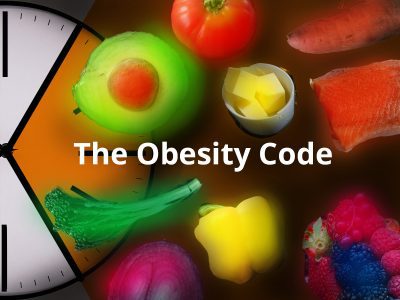
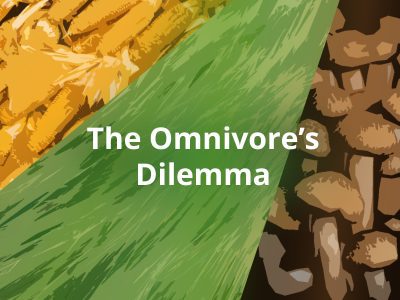
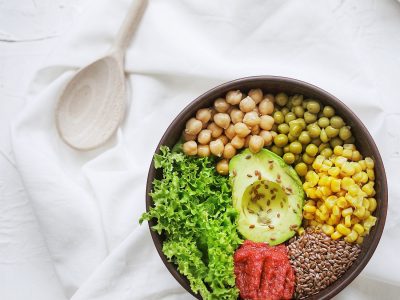

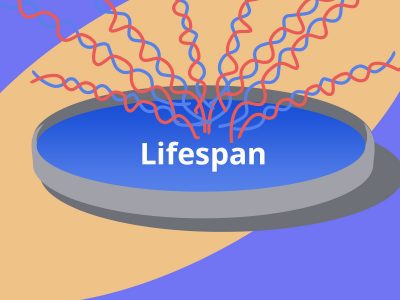
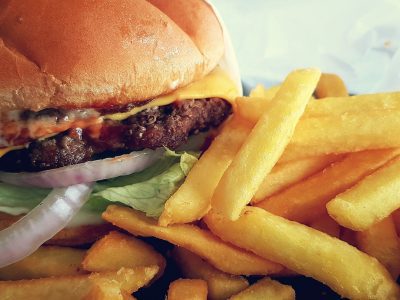
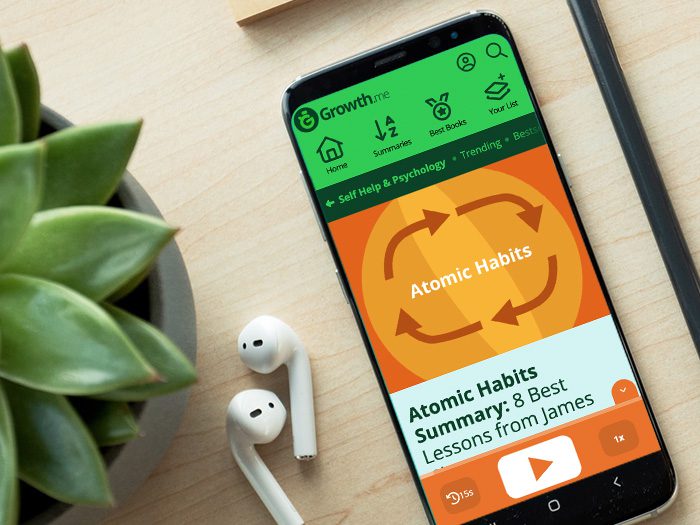





Community Notes